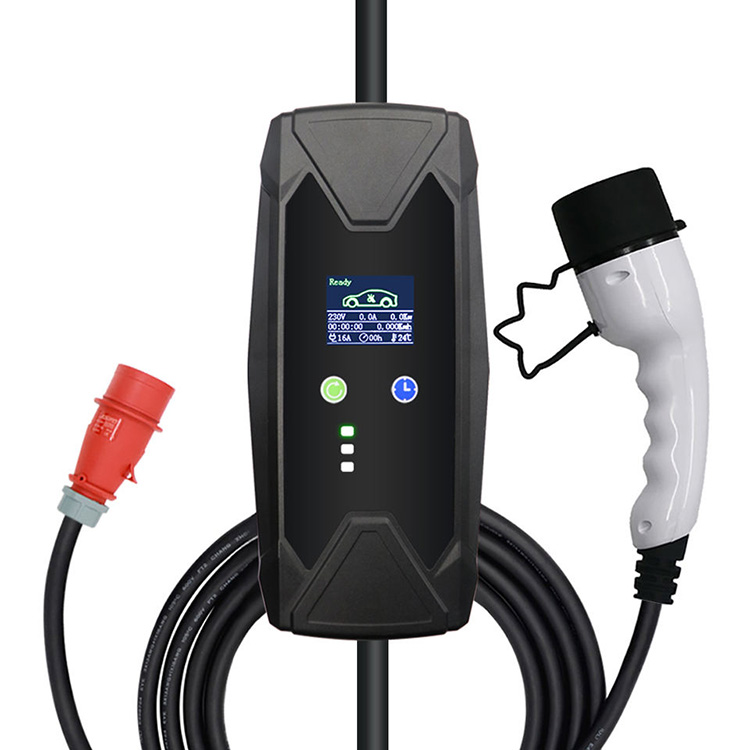Features and aspects of portable EVSE chargers
2023-10-18
Portable EVSE (Electric Vehicle Supply Equipment) chargers, often referred to as portable EV chargers or simply EV chargers, are devices designed to provide electric vehicles with the necessary electrical power to recharge their batteries. These chargers offer flexibility and convenience, as they can be easily transported and used in various locations, including homes, workplaces, and public charging stations. They are especially useful for EV owners who don't have dedicated home charging stations or need to charge their vehicles while on the go.
Here are some key features and aspects of portable EVSE chargers:
1. Portability: Portable EV chargers are lightweight and compact, making them easy to carry and transport. This enables EV owners to charge their vehicles wherever there is access to a compatible power outlet.
2. Plug Types: Portable chargers come with different plug types that correspond to the charging standard used by the EV. This could be Type 1, Type 2, CHAdeMO, CCS, or even Tesla-specific plugs, depending on the EV model and region.
3. Power Levels: Portable chargers are available in various power levels, usually measured in kilowatts (kW). Higher power levels allow for faster charging, but they may require more powerful electrical circuits.
4. Charging Speeds: Charging speed depends on the power level of the charger and the capabilities of the EV. Portable chargers typically offer Level 1 (110V or 240V AC) or Level 2 (240V AC) charging speeds. Some high-power portable chargers can also support DC fast charging.
5. Safety Features: Reliable portable EV chargers come with safety features such as overcurrent protection, overvoltage protection, ground fault detection, and temperature monitoring to ensure safe charging.
6. Compatibility: It's important to choose a portable charger that is compatible with your specific EV make and model. Different EVs have different charging standards and plug types.
7. Cable Length: The length of the charging cable provided with the portable charger can impact where and how you can charge your EV. A longer cable provides more flexibility.
8. User-Friendly Interfaces: Many portable chargers have user-friendly interfaces with indicators and displays that provide information about the charging status, power levels, and any potential issues.
9. Accessories: Some portable chargers come with carrying cases, cable organizers, and adapters to ensure ease of use and storage.
10. Regulations and Standards: Depending on the region and country, there might be regulations or standards that portable chargers need to meet for safety and compatibility.
When choosing a portable EVSE charger, consider your charging needs, the power supply available at your charging locations, and the compatibility with your EV. It's advisable to purchase chargers from reputable manufacturers to ensure safety and reliability. Always follow the manufacturer's guidelines for proper use and maintenance.



